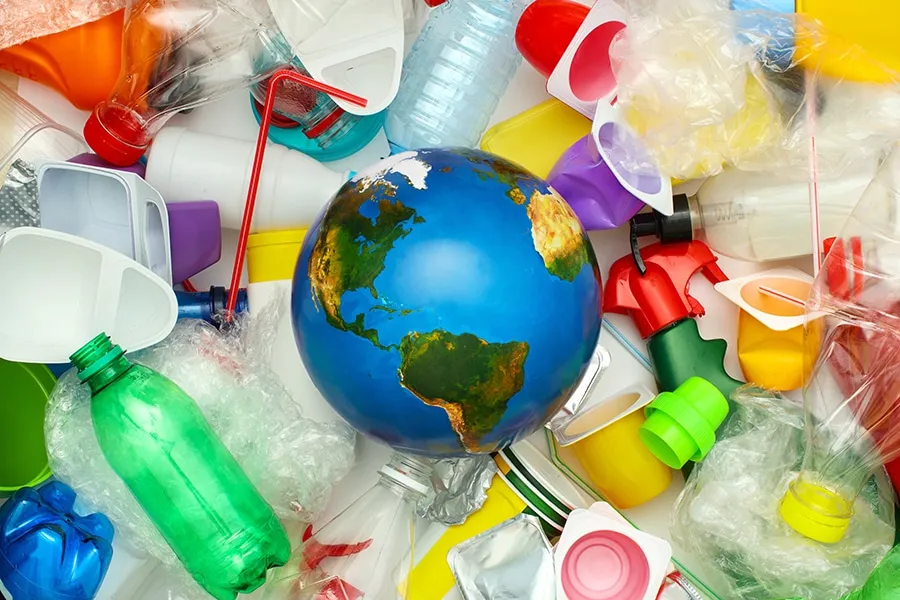Introduktion
Canadas udviklende håndtering af plastaffald
Canadas rejse mod forbedret håndtering af plastaffald er præget af et konstant skift til bæredygtige praksisser. I øjeblikket genbruger landet en beskeden procentdel af sit plastaffald, men tendensen ændrer sig positivt med voksende miljøbevidsthed og lovgivningsmæssig støtte.
Dataindsigt og tendenser
Nylige data tegner et billede af gradvis forbedring af genbrugsinitiativer, der varierer på tværs af regioner. Udfordringerne omfatter forskelle i genbrugskapaciteter og offentlig bevidsthed. COVID-19-pandemien har yderligere kompliceret dette landskab, øget plastikforbruget og lagt yderligere pres på genbrugssystemerne.
Branchens udfordringer
De vigtigste udfordringer omfatter utilstrækkelig genbrugsinfrastruktur, kompleksiteten ved genbrug af visse typer plast og forstyrrelser på de globale genbrugsmarkeder. Pandemien har understreget behovet for robuste og modstandsdygtige genbrugssystemer.
Rollen af Maskiner til genbrug af plast
Indvirkning på industriens vækst
Plastgenbrugsmaskiner står i spidsen for Canadas genbrugsrevolution. Avanceret udstyr som højeffektive shreddere og granulatorer er blevet mere afgørende på grund af øget plastaffald og behovet for bedre genbrugsteknikker.
Teknologiske fremskridt
Markedet oplever en stigning i teknologiske innovationer, hvor sofistikerede sorteringssystemer forbedrer kvaliteten og effektiviteten af genbrugsmaterialer. Dette teknologiske spring er afgørende for behandlingen af en bredere vifte af plast og dermed forstærker industriens kapacitet.
Maskintyper og anvendelser
De vigtigste maskintyper omfatter:
- Makuleringsmaskiner: Vigtig for at nedbryde plastaffald.
- Granulatorer: Reducer plastik yderligere til granulat til genbrug.
- Sorteringssystemer: Udnyt avancerede teknologier til bedre klassificering og genbrugskvalitet.
Markedsdrivere og udfordringer
Vækstdrivere
Markedet er drevet af miljøreguleringer, forbrugernes efterspørgsel efter bæredygtige produkter og statslige incitamenter. Indførelsen af programmer for udvidet producentansvar (EPR) og initiativer som Canadian Plastics Innovation Challenge katalyserer vækst i industrien.
Branchens udfordringer
Udfordringerne omfatter høje omkostninger til avanceret maskineri, behovet for kvalificeret arbejdskraft og teknologisk forældelse. Derudover har COVID-19-pandemien medført forstyrrelser i forsyningskæden og øget plastaffald fra medicinske forsyninger.
Overvindelse af udfordringer
Strategier til at imødegå disse udfordringer omfatter statsstøtte, samarbejde med industrien og løbende innovation. Offentlig-private partnerskaber og uddannelsesinitiativer er afgørende for at fremme genbrugskapaciteter.
Fremtidige tendenser og forudsigelser
Markedsforudsigelser
I 2030 forventes teknologiske fremskridt som kunstig intelligens inden for sortering og forarbejdning at blive mere udbredte og dermed forbedre genbrugseffektiviteten.
Innovationers indflydelse
Innovationer vil ikke blot øge genbrugskapaciteten, men også forbedre kvaliteten af genbrugsplast og dermed skabe nye markedsmuligheder.
Forventet vækst
Markedet for genbrugsmaskiner af plast i Canada forventes at opleve robust vækst, hvilket vil bidrage væsentligt til landets miljømål.
Konklusion
Det canadiske marked for plastgenbrug udvikler sig hurtigt, hvor maskiner spiller en central rolle. Væksten til 4,38 millioner tons i 2030 markerer et stort spring mod bæredygtighed, drevet af teknologisk innovation og politisk støtte. Dette marked er ikke blot et segment af affaldshåndtering, men en nøgleaktør i Canadas miljømæssige fremtid.



